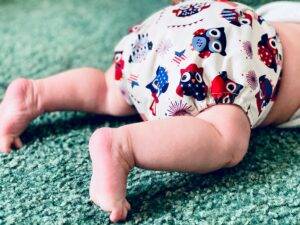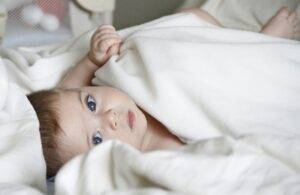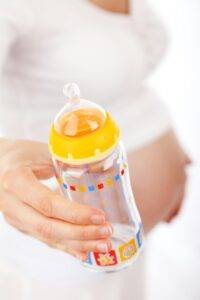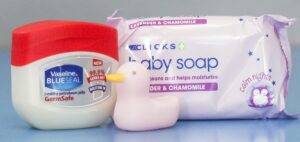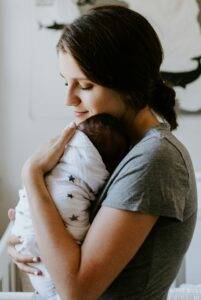Welcoming a newborn into your family is an exciting and joyful experience. However, it can also be overwhelming, especially for first-time parents. Ensuring you have all the necessary items to care for your baby is crucial for a smooth transition. Get those newborn essentials!
Here’s a comprehensive guide on the must-have newborn essentials every parent needs to prepare for their little one’s arrival, helping you start your journey. Ensuring you have the right items to care for your newborn makes the transition smoother and less stressful.
Each baby is unique, so you may need to adjust your list of newborn essentials based on their distinct needs and preferences.
1. Diapers and Wipes–Foremost Among Newborn Essentials
Diapers are undoubtedly the foremost newborn essential item. Newborns typically go through 8-12 diapers daily, so stocking up on diapers is a must. Disposable and cloth diapers have their pros and cons. Disposable diapers are convenient, while cloth diapers are more environmentally friendly and cost-effective in the long run.
You’ll also need a supply of wipes among the newborn essentials. Look for those that are gentle on your baby’s sensitive skin and free from harsh chemicals. Choosing the right diaper brand makes a difference. Some parents prefer eco-friendly brands, while others mainstream options with added features like wetness indicators.
Try different types to see which works best for your baby’s skin and your family’s lifestyle. In addition to diapers and wipes in your newborn essentials, don’t forget the diaper pail. This fixture is a lifesaver–designed to contain odors, especially in small living spaces. Look for one that uses standard trash bags to save on special refills.
Another useful item among the newborn essentials is a portable changing pad. It’s perfect for on-the-go diaper changes and easily cleaned after each use.
2. Baby Clothes
Newborn essentials always include comfortable and soft clothing. You’ll need a variety of outfits, including onesies, sleep sacks, and baby gowns. Opt for clothes made of breathable and soft materials like cotton. Have a mix of sizes because babies grow fast.
Consider the season and climate when selecting baby clothes. Cold areas need warm clothing like hats and socks, while light clothing suits warm climates. When dressing your baby, layering is key. Babies can’t regulate their body temperature like adults, so having layers that can be added or removed helps keep them comfortable.
A rule of thumb is to dress your baby in one more layer than you would wear. Don’t forget the small newborn essentials like mittens to prevent scratching and bibs to catch drool and spit-up. Also, think about easy access. Clothing with zippers or magnetic closures makes diaper changes much easier than buttons or snaps.
3. Swaddles and Blankets
Swaddling helps newborns feel secure and promotes better sleep. Invest in a few swaddle blankets made of soft, breathable fabric. These blankets keep your baby warm and snug, mimicking the feeling of being in the womb. A couple of regular blankets are also essential for tummy time, as a nursing cover, or to keep your baby warm.
Another item among the newborn essentials, swaddle blankets come in various designs, from traditional square blankets to more modern options with velcro or zipper closures. The latter is easier for new parents, ensuring a snug fit without the risk of the swaddle coming undone.
Beyond swaddles, consider having a few different types of blankets on hand as your newborn essentials. Muslin blankets are great for warm weather and are used in many ways. Heavier blankets or quilts are useful for cooler climates or play mats when your baby becomes more active.
4. Crib and Mattress
A safe and comfortable sleeping environment is equally important in your newborn essentials. A crib with a firm mattress is the most important investment. Ensure the crib meets all safety standards to protect your baby while they sleep. A fitted crib sheet makes changing the bedding easier and keeps the sleeping area clean and hygienic.
When selecting a crib, look for one with adjustable mattress heights. This allows you to lower the mattress as your baby grows and starts to stand up, ensuring they remain safe. Many parents also opt for cribs that convert into toddler beds, providing longer-term use from a single piece of furniture.
A good-quality mattress is essential for your baby’s comfort and safety. Choose one that is firm and fits snugly within the crib, with no gaps at the edges. Hypoallergenic and waterproof covers protect the mattress from spills and accidents, extending its lifespan and maintaining hygiene.
For the crib bedding, stick to the basics: a fitted sheet and, if needed, a mattress protector. Avoid pillows, stuffed animals, and heavy blankets in the crib, as these can pose suffocation hazards. A sleep sack or wearable blanket is a safer alternative to keep your baby warm.
5. Baby Carrier or Wrap
Keeping your baby close while having your hands free is a game-changer for many parents. A baby carrier or wrap allows you to carry your baby comfortably and securely while you move around. This is especially useful for soothing a fussy baby or getting things done around the house.
Look for a carrier with good support for you and your baby, with adjustable straps and breathable fabric. Several types of carriers include structured carriers, wraps, and slings. Structured carriers have more support and are used for long periods, while wraps and slings offer a closer, more intimate carrying experience.
Try different styles to see what works best for you and your baby. Safety is paramount when using a baby carrier. Ensure your baby’s face is visible and kissable, and they have clear airways. Proper positioning is also crucial to prevent hip dysplasia; your baby’s legs should form an “M” shape with knees higher than their bottom.
6. Breastfeeding Supplies
If you plan to breastfeed, having the right supplies makes the process easier and more comfortable. Essentials include a good-quality breast pump, nursing bras, and breast pads. A breastfeeding pillow provides extra support and comfort for you and your baby during feeding sessions. Have a supply of nipple cream to soothe and protect your skin.
Breast pumps come in manual and electric varieties, with electric pumps being more efficient for regular use. Some insurance plans cover the cost of a breast pump, so check your benefits. Breast milk storage bags are another useful item, allowing you to store and freeze milk for future use.
Nursing bras and tops make breastfeeding more convenient, providing easy access while maintaining some modesty. Breast pads, whether disposable or washable, help manage leaks and keep you feeling dry. A comfortable chair or a designated breastfeeding spot in your home makes feeding more enjoyable.
Having a water bottle and snacks nearby also helps, as breastfeeding makes you thirsty and hungry.
7. Bottles and Formula
Even if you’re breastfeeding, having a few bottles on hand is a good idea. You may need to supplement with formula or express milk for feeding. Choose bottles that are easy to clean and come with slow-flow nipples designed for newborns. If you plan to formula-feed, consult your pediatrician to choose a suitable formula for your baby.
When selecting bottles, consider those with anti-colic vents, which can help reduce the air your baby swallows and minimize gas and discomfort. Babies prefer different bottle shapes or nipple types, so it may take some experimentation to find the right match.
Formula-feeding parents should invest in a high-quality formula that meets their baby’s nutritional needs. Your pediatrician guides you on the best options. Having a formula dispenser or pre-measured containers makes preparing bottles on the go much easier.
Proper bottle sterilization is crucial, especially in the early months. The methods are boiling, microwave sterilizer, or an electric sterilizer. Regularly cleaning and sterilizing bottles and nipples helps prevent infections and keeps your baby safe.
8. Baby Monitor
A baby monitor gives you peace of mind by allowing you to keep an eye (and ear) on your baby when you’re not in the same room. There are various types from basic audio to advanced video monitors with temperature sensors and smartphone connectivity. Choose a monitor that suits your needs and provides clear and reliable for your baby.
Audio monitors are the most basic type, offering sound-only monitoring. They are often more affordable and can be sufficient if you live in a smaller space. Video monitors provide a visual of your baby and are useful for checking on them without entering the room and possibly disturbing their sleep.
For tech-savvy parents, smart monitors that connect to your smartphone can be very convenient. These monitors have additional features like movement detection, sleep tracking, and two-way audio. However, they can be more expensive, so consider what features are most important to you.
The placement of the baby monitor is also key. Ensure it is positioned far from the crib, with a clear view and good sound reception. Regularly check the monitor to ensure it’s functioning correctly and providing the necessary coverage.
9. Bathing Essentials
Bathing a newborn can be daunting, but having the right supplies makes it easier and safer. You’ll need a baby bathtub, gentle baby soap and shampoo, soft washcloths, and hooded towels. Look for products specifically designed for newborns, as they’re gentle on your baby’s delicate skin.
A baby bathtub provides a safe and comfortable space for bathing your newborn. Some tubs come with built-in support to hold your baby in place, which can be very helpful when first learning how to bath them. Inflatable tubs and sink inserts are also popular for their convenience and ease of use.
A bath thermometer also helps ensure the water temperature is just right. Choosing the right soap and shampoo is important for maintaining your baby’s skin health. Opt for fragrance-free, hypoallergenic products that are designed for sensitive skin. After the bath, a gentle baby lotion helps your baby’s skin moisturize and prevent dryness.
Hooded towels are great for keeping your baby warm and cozy after a bath. They dry your baby quickly while covering their head, helping retain body heat. A few soft washcloths on hand are useful for gentle cleaning and wiping.
10. First Aid Kit and Baby Care Items
A well-stocked first aid kit is newborn essential for any new parent. Include baby nail clippers, a digital thermometer, a nasal aspirator, and baby-friendly medications like acetaminophen (after consulting with your pediatrician). Having baby lotion, diaper rash cream, and a soft hair brush will help you and your little one’s daily needs.
Baby nail clippers or a file are important for keeping your baby’s nails short and preventing scratches. Newborns’ nails grow fast, so regular trimming is necessary. A digital thermometer is essential for accurately monitoring your baby’s temperature if you suspect they’re not feeling well.
A nasal aspirator helps clear your baby’s nasal passages, making it easier for them to breathe, especially during colds. There are bulb and electric versions, and having one on hand can be a relief during times of congestion.
Diaper rash cream is another newborn essential item. Babies’ skin is delicate and prone to rashes, especially in the diaper area. A good quality diaper rash cream can soothe irritation and protect the skin.
Additional Tips for New Parents
Preparing for your baby’s arrival is more than just having the newborn essentials. Here are some additional tips to help you navigate the early days of parenthood:
Establish a Routine
Newborns thrive on routine. A consistent schedule can help your baby feel secure. Try to set regular times for feeding, sleeping, and play. While newborns have unpredictable patterns, a general routine provides structure. Creating a sleep-friendly environment can also aid in establishing a routine.
Keep the room dim and quiet during nighttime feeds and diaper changes. Over time, your baby will associate these conditions with sleep, which helps them settle more easily.
Seek Support
Don’t hesitate to ask for help from family and friends. Whether babysitting, cooking meals, or simply offering a listening ear, having a support system makes a difference. Consider joining a new parent support group, where you share experiences and get advice from others going through the same stage of life.
Online forums and social media groups are also valuable resources. Connecting with other new parents provides community and support, especially if you’re navigating parenthood without close family nearby.
Educate Yourself
Knowledge is power. Read books, attend parenting classes, and stay informed about newborn care. Websites like Omega Pediatrics offer valuable resources and information to help you understand your baby’s needs better.
Stay updated on your baby’s developmental milestones. Knowing what to expect helps you prepare for changes and recognize if something is amiss. Regular check-ups with your pediatrician are crucial for tracking your baby’s growth and development.
Enjoy the Journey
The newborn stage passes quickly, even though it might not feel like it during sleepless nights. Cherish the moments, take lots of pictures, and enjoy the special time with your baby. The challenges will become cherished memories as your baby grows.
Documenting milestones, no matter how small, creates lasting memories. From their first smile to their first bath, these moments are precious. Creating a baby journal or a photo album can be a wonderful way to preserve these memories.
Ensure the Essentials for Your Baby’s Arrival
Welcoming a newborn into your home is an incredible experience with love and joy. Ensure the newborn essentials, and be prepared to provide the best care for your little one. Remember to take it one day at a time, seek support when needed, and enjoy every moment of this beautiful journey.
For more tips on preparing for your newborn, check out these helpful articles from Omega Pediatrics:

